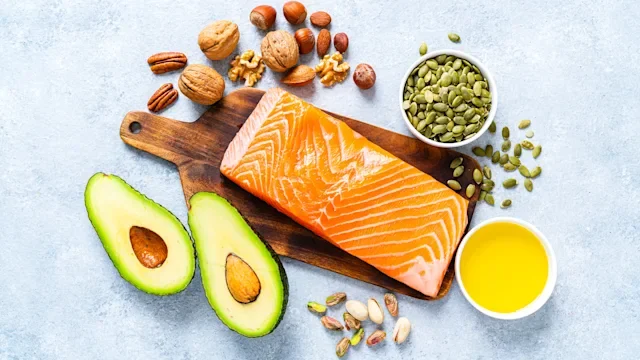Key takeaways:
Bone broth is a soup made by simmering animal bones in water. You can add vegetables like carrots, celery, or onion to enhance the flavor.
It contains about 10 g of protein per cup, mostly in the form of collagen or gelatin. These types of protein may have benefits for gut, joint, and skin health.
Bone broth is good for you, but it isn’t a cure-all. Pay attention to sodium content in store-bought versions, since many brands have high amounts.
While chicken soup has long been held up as a healing food, a new soup has taken the spotlight. Bone broth is gaining popularity, with people promoting it for everything from skin health to better sleep and improved digestion.
Can a simple broth really have all of these health benefits? Let’s take a closer look at what bone broth is, why it seems to be having a “moment,” and whether it actually offers the health benefits that people claim it does.
What is bone broth?
Bone broth is a soup made from simmering animal bones in water. To make bone broth, you roast animal bones, then simmer them in water for 12 to 48 hours. You can also add vegetables (like carrots and celery), herbs, and spices. You can buy bone broth premade, or you can make it yourself.
You can make bone broth from the bones of:
Chicken
Turkey
Cows
Fish
Pigs
Lamb
Deer
Bison
Bone broth can use any bones from the animal, including the neck, tail, and feet. Some recipes also use animal skin, cartilage, and inner organs. You can use whatever is available from your butcher shop or grocery store.
Most bone broth recipes call for an acid, such as vinegar or lemon juice. Adding an acid to the broth during cooking helps to release collagen from bones as they cook. Collagen is a protein found only in animal foods. It provides structure and support to human body tissues. As bone broth cooks, collagen forms another protein called gelatin. Gelatin makes the broth thicker.
Bone broth vs. regular broth
Regular broth (like chicken or beef broth) is made by simmering meat and vegetables. Regular broth typically contains anywhere from 0.5 g to 6 g of protein per serving, depending on the brand. Bone broth contains higher amounts of protein, usually around 10 g per serving. This higher protein in bone broth may provide some specific health benefits.
Bone broth nutrition facts
The name “bone broth” may give the impression that it’s high in calcium or good for your bones. But bone broth has very little calcium per cup. In fact, bone broth is not a significant source of any vitamins or minerals, save for a moderate amount of iron.
Do collagen supplements work? Oral collagen supplements may benefit skin, bone, and joint health. But it’s not clear that they improve hair or nails.
Foods high in collagen: If you want to increase your collagen intake but don’t want to take supplements, try adding high-collagen foods to your diet.
Diet’s impact on skin: Many things affect the health of your skin, including diet. Check out the best foods and drinks for glowing skin.
Below is nutrition information for one popular store-bought brand of beef bone broth (1 cup):
Calories: 50
Fat: 0 g
Carbohydrates: 3 g (1% DV)
Protein: 10 g (20% DV)
Sodium: 391 mg (16% DV)
Iron: 1.1 mg (6% DV)
Percentages are based on the percent daily value (DV), or how much of a nutrient you’re recommended to eat per day.
What are the potential benefits of drinking bone broth?
The protein in bone broth — specifically the collagen and gelatin — is the reason for most of its health benefits. Let’s take a look at what the research says.
1. Gut health
Glutamine, one of the amino acids in bone broth, may help the gut by:
Reducing inflammation
Strengthening the intestinal lining
Balancing good and bad bacteria
Bone broth’s role in reducing gut inflammation may be particularly helpful for people with ulcerative colitis. This is a chronic inflammatory bowel disease (IBD) that causes inflammation in the lining of the colon and rectum. But so far, studies have mostly been on mice, not humans. So more research is needed to see how bone broth may benefit gut health.
2. Joint health
Bones contain protein in the form of collagen. When bones cook in water, collagen is released into the water. If cooked long enough, the collagen from bones becomes gelatin. Collagen and gelatin break down to provide the amino acids glycine and proline, which may support joint health.
Collagen and gelatin help stimulate chondrocytes, cells that make cartilage. This may help restore deteriorating collagen in joints.
Research also suggests that collagen may help relieve joint pain from overuse or osteoarthritis. One study showed that adults taking chicken collagen pills for 8 weeks had less joint pain and stiffness, and improved mobility.
3. Skin health
There aren’t clinical studies on the effects of bone broth on skin health. But there are studies on collagen supplements and their effect on skin. The studies looked specifically at hydrolyzed collagen supplements. These are supplements in which the collagen is already broken down. This type of collagen is easier to digest than raw collagen.
A research review of 19 studies found that hydrolyzed collagen supplements helped improve skin hydration and elasticity, and helped reduce the appearance of wrinkles.
If bone broth contains a good amount of collagen, it may help improve skin health, too. But collagen content is not listed on ingredient lists or on nutrition facts tables. And different bone broths contain different amounts of collagen. Some research has found that commercial bone broth may not deliver enough collagen to make a difference.
4. Weight loss
Some people use bone broth as a food to help with weight loss. While there are no clinical studies on bone broth and weight loss, we know bone broth is:
A low-calorie food
High in protein, which promotes satiety (feeling full). Protein may also reduce your appetite by decreasing levels of ghrelin, the hormone that makes you feel hungry.
Hydrating due to its high water content. Staying hydrated may reduce overall calorie intake because it helps you feel full after eating. On the flip side, when you're dehydrated, you may interpret thirst as a hunger signal and eat more.
Other health claims
Bone broth is advertised as a healing soup that can help with everything from headaches to insomnia to “body detoxification.” But there aren’t clinical studies to support these benefits, so they may be more marketing hype than fact. Bone broth shouldn’t be relied upon as a cure for all health problems.
What are the different types of bone broth?
There are many kinds of bone broth. Each type of bone broth differs in:
The bones used: Bone broth can be made from the bones of just one species of animal, or a combination of bones from different species of animals.
Flavor: The flavor of the broth will differ depending on which vegetables, herbs, and spices are added to the cooking water.
Texture: Cooking time affects texture. The longer bone broth cooks, the more gelatin will form from the collagen. The more gelatin in the broth, the thicker it will be.
Form: Commercial bone broth is available in liquid and powder form (to which you add hot water). You can also find low-sodium, organic, and gluten-free bone broth (made without yeast extract or other gluten-containing preservatives).
Can you drink bone broth every day?
It’s safe to drink bone broth every day. A 1 cup serving provides 10 g of protein. But keep an eye on sodium content. Many store-bought bone broths have as much as 400 mg sodium per serving — equal to about 15% of your recommended daily intake for sodium. It’s a good idea to try to find a low-sodium bone broth.
You also may have heard concerns about bone broth containing lead or trace metals from animal bones. But researchers found that the amount of contaminants that end up in bone broth is extremely low. It is safe to drink.
How long does it take to feel the benefits of bone broth?
There’s no set amount of time that it takes for collagen to work. Clinical studies on joint pain usually last for 8 weeks, and study participants have reported improvements in that time frame. There are no studies on bone broth for skin health, but research suggests that collagen supplements can help reduce the appearance of wrinkles in about 3 months.
Studies show that the protein content of bone broth varies quite a bit. Therefore, bone broth may not be as reliable a source of protein as collagen supplements. So if you’re considering using collagen for a therapeutic purpose, choose bone broth that guarantees 10 g protein per cup (rather than guessing by making your own). Or use collagen supplements instead.
Frequently asked questions
Choose a low-sodium bone broth with 10 g of protein per cup. Keep in mind that a simple broth made from meat or skin (like chicken broth) isn’t considered bone broth, and will be lower in protein. Packages labeled as stock, soup, or bouillon aren’t the same as bone broth.
There’s no best time to drink bone broth. You can enjoy it at any time that suits your preferences. Some people like to sip bone broth in between meals as a snack, since the protein helps fill you up.
A bone broth fast, also known as a cleanse or a detox, is a fad diet that involves eating little food except bone broth for days. Despite the marketing hype, there’s no scientific proof that fasting diets are necessary, helpful, or effective. The body self-cleanses through urine, sweat, and poop, and doesn’t require additional detoxing.
Choose a low-sodium bone broth with 10 g of protein per cup. Keep in mind that a simple broth made from meat or skin (like chicken broth) isn’t considered bone broth, and will be lower in protein. Packages labeled as stock, soup, or bouillon aren’t the same as bone broth.
There’s no best time to drink bone broth. You can enjoy it at any time that suits your preferences. Some people like to sip bone broth in between meals as a snack, since the protein helps fill you up.
A bone broth fast, also known as a cleanse or a detox, is a fad diet that involves eating little food except bone broth for days. Despite the marketing hype, there’s no scientific proof that fasting diets are necessary, helpful, or effective. The body self-cleanses through urine, sweat, and poop, and doesn’t require additional detoxing.
The bottom line
Bone broth is a soup made by simmering animal bones in water. The protein in bone broth is mostly in the form of collagen and gelatin, which may help support your gut, joint, and skin health. But bone broth that you buy at the store is often high in sodium, so make your own, or look for low-sodium versions. While bone broth isn’t quite the healing potion that some advocates claim it is, it’s a flavorful soup that may have some health benefits. So if you’re curious to give it a try, there’s certainly no harm. And you may even love it.

Why trust our experts?



References
Alcock, R. D., et al. (2019). Bone broth unlikely to provide reliable concentrations of collagen precursors compared with supplemental sources of collagen used in collagen research. Human Kinetics Journals.
Cook, D. (2022). Is bone broth healthy? Canadian Digestive Health Foundation.
Corney, R. A., et al. (2015). Immediate pre-meal water ingestion decreases voluntary food intake in lean young males. European Journal of Nutrition.
de Miranda, R. B., et al. (2021). Effects of hydrolyzed collagen supplementation on skin aging: A systematic review and meta-analysis. International Journal of Dermatology.
Dietary Guidelines for Americans. (2020). Dietary Guidelines for Americans, 2020-2025.
Eiselt, A., et al. (2021). Hunger or thirst state-uncertainty is resolved by outcome evaluation in medial prefrontal cortex to guide decision-making. Nature Neuroscience.
Honvo, G., et al. (2020). Role of collagen derivatives in osteoarthritis and cartilage repair: A systematic scoping review with evidence mapping. Rheumatology and Therapy.
Hsu, D., et al. (2017). Essential and toxic metals in animal bone broths. Food & Nutrition Research.
Jeong, J. N. (2018). Effect of pre-meal water consumption on energy intake and satiety in non-obese young adults. Clinical Nutrition Research.
Kosečková, P., et al. (2024). Nutritional insights into broths in relation to elemental composition. European Food Research and Technology.
Lin, C., et al. (2023). Analgesic efficacy of collagen peptide in knee osteoarthritis: A meta-analysis of randomized controlled trials. Journal of Orthopaedic Surgery and Research.
Mar-Solís, L. M., et al. (2021). Analysis of the anti-inflammatory capacity of bone broth in a murine model of ulcerative colitis. Medicina.
Matar, A., et al. (2025). Bone broth benefits: How its nutrients fortify gut barrier in health and disease. Digestive Diseases and Sciences.
Mohammed, A., et al. (2021). A double-blind, randomized, placebo-controlled trial to evaluate the efficacy of a hydrolyzed chicken collagen type II supplement in alleviating joint discomfort. Nutrients.
MyFoodData. (n.d.). Epic Provisions - bone broth.
National Center for Complementary and Integrative Health. (2025). “Detoxes” and “cleanses”: What you need to know. National Institutes of Health.
Takeuchi, F., et al. (2022). Effects of non-essential amino acids on knee joint conditions in adults: A randomised, double-blind, placebo-controlled trial. Nutrients.














